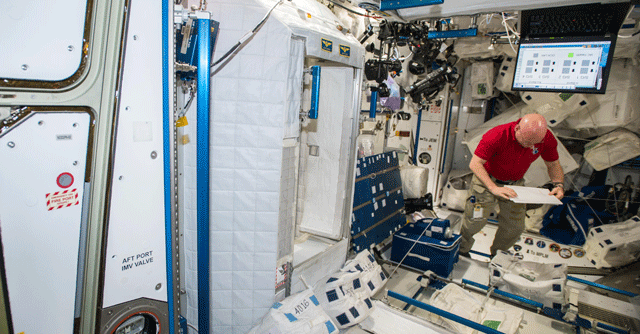
IIT Madras collaborates with NASA JPL to study microbes aboard ISS


The Indian Institute of Technology (IIT) Madras has announced a collaborative study with the Jet Propulsion Laboratory (JPL), the research hub of central US space agency National Aeronautics and Space Administration (NASA), to study the impact of microorganisms aboard the International Space Station. Observations from the research project will help create medical solutions to aid astronauts in long term human missions in space.
Explaining the observations, Karthik Raman, assistant professor at the department of biotechnology, IIT Madras, said that the collection of microbes, which includes a variety of bacteria and fungi, have occurred over time due to the astronauts that have been aboard the ISS over the past decades.
“Even though the ISS is a highly sterile environment, these microbes can play a big role in the way human presence in a space environment works — which our research work sought to highlight,” Raman said.

To be sure, this is not the first project of its kind designed to study the role of microbes in space. In March last year, a research project by the School of Life Sciences, University of Hyderabad — in association with NASA’s JPL — found a unique strain of bacteria that evolved in the environment of the ISS.
According to the project, three previously unknown bacteria strains were discovered aboard the ISS, which the scientists concluded could be vital in understanding the potential of plant growth in future long-term missions in space.
The IIT Madras study, however, applied computational models to understand metabolic interactions between these microbes — which can significantly alter the sterile environment of the ISS.

The research study was published in the Microbiome journal on July 6, and highlighted through its computational method that the interaction of the observed microbes could be beneficial to the symbiotic growth of these organisations even aboard the ISS — thus underlining their potential in supporting life in long duration space missions.
